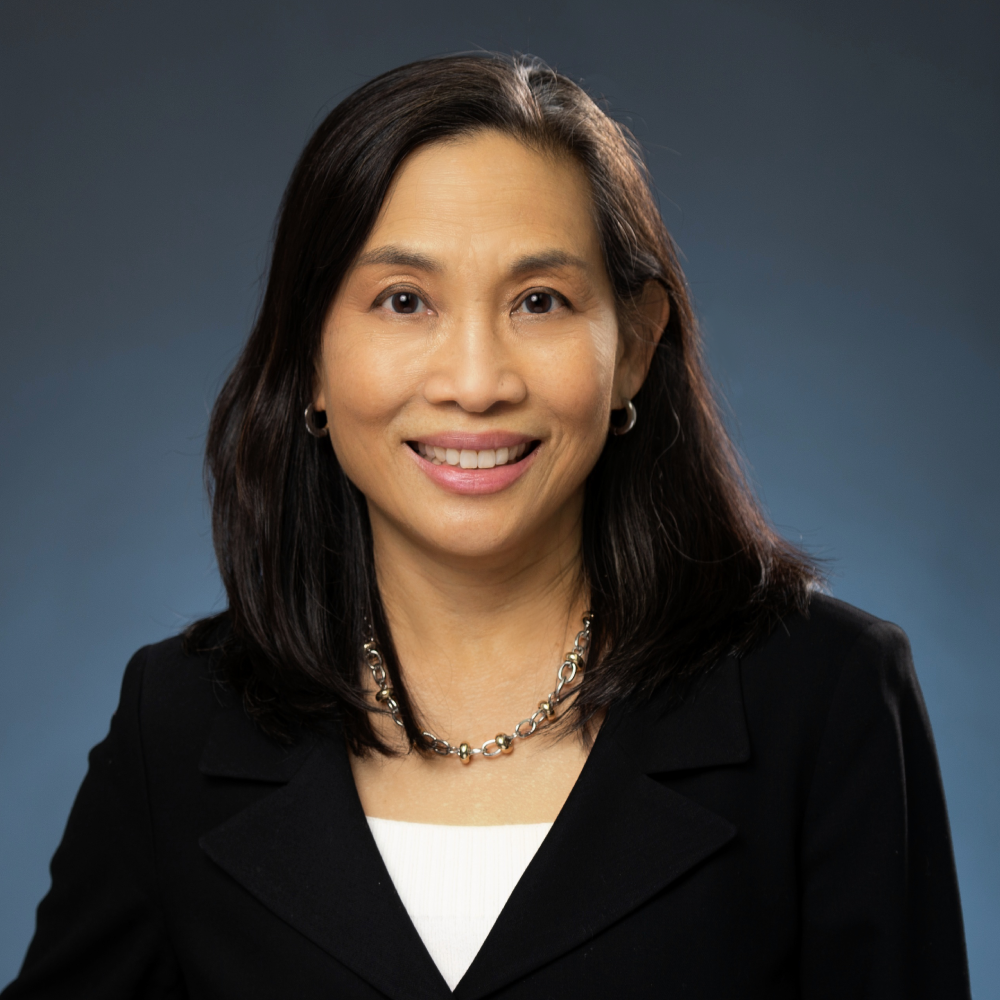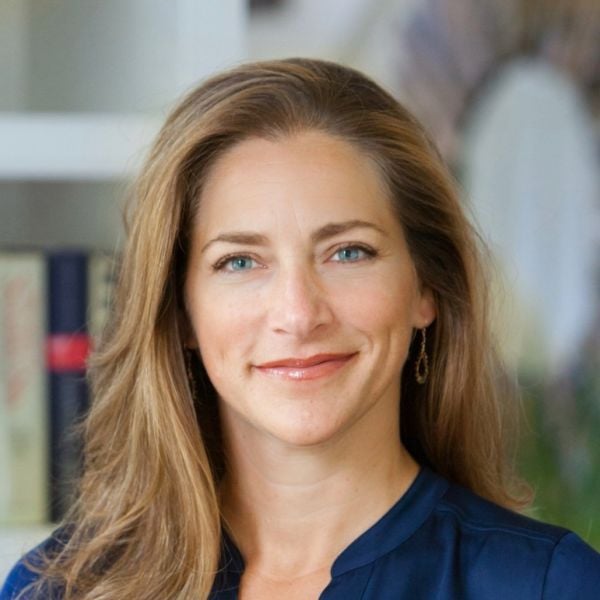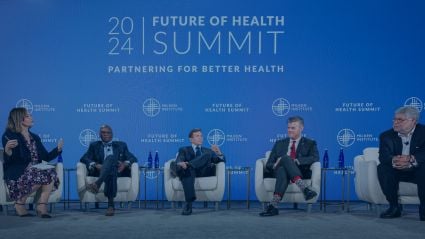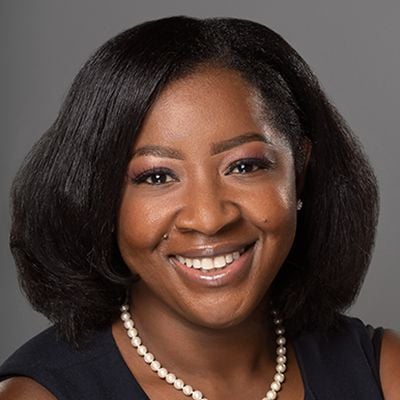
In This Issue
Convenings
Program Updates
Reports and Resources
Milken Institute Strategic Philanthropy and Our Partners in the News
Since our last update, Milken Institute Strategic Philanthropy has worked with our partners to direct nearly $70 million in philanthropic capital to advance medical research and access to care and identified the 10 teams that will advance to the next round of the Milken-Motsepe Prize in FinTech.
Later this fall, we will release Giving Smarter Guides on health equity and gun violence prevention, and host the Future of Health Summit in Washington, DC. In the meantime, the following articles offer a roundup of our work from the past few months. Follow us on LinkedIn and X for real-time updates and information. Also, keep an eye on our Giving Compass blog platform, the Breakthrough Discoveries for thriving with Bipolar Disorder (BD2) updates page, and the Milken-Motsepe Prize page for real-time updates and information.
Convenings
From left to right: Melissa Stevens, Milken Institute Strategic Philanthropy, with Ivy McGregor, BeyGOOD, in conversation at the Reducing Inequality in Challenging Times roundtable.
Just a few years ago, philanthropic support for diversity, equity, and inclusion programs was rising. More recently, however, there has been increasing skepticism regarding the intentions and outcomes of such programs. At a United Nations General Assembly side event in September, Milken Institute EVP Melissa Stevens moderated a roundtable titled “Reducing Inequality in Challenging Times.” This discussion explored the complex dynamics at play, examining how philanthropic organizations and individuals can navigate and respond to the challenges posed by the current climate, while also working toward fulfilling Sustainable Development Goal 10: Reducing Inequalities.
Speakers from left to right: Stevens (moderator), Milken Institute; Binod K. Chaudhary, Chaudhary Group Corp Global; Shaline Gnanalingam, Maverick Collective; Gabriel Leung, Charities and Community, The Hong Kong Jockey Club; and Laurence Lien, Asia Philanthropy Circle.
At the Milken Institute Asia Summit in September, Stevens moderated a panel exploring innovative philanthropic models that are disrupting traditional giving. Panelists discussed how the pooling of resources enhances impact, yields measurable social returns alongside financial profits, and leverages business principles for sustainable change. The Asia Summit also featured private sessions on climate and health philanthropy, sharing insights from Mary Ann Tsao, Poman Lo, and leaders from the Hong Kong Jockey Club and the Temasek Foundation. Watch the session.
Cara Altimus, Milken Institute SPARC, Breakthrough Discoveries for thriving with Bipolar Disorder (BD²), right; Mark Frye, Mayo Clinic and BD², center; and Kate Burdick, Mass General Brigham-Harvard Medical School, and BD², left, at the International Society for Bipolar Disorders conference in Reykjavik, Iceland.
Leaders from BD², an organization developed, launched, and led by the Milken Institute Science Philanthropy Accelerator for Research and Collaboration (SPARC), traveled to Reykjavík, Iceland, for the International Society for Bipolar Disorders annual meeting. Here, they met with clinicians, scientists, advocates, and those with lived experience to learn about new advances in research and treatment of bipolar disorders. The team presented data collected from the BD² Integrated Network and shared updates on the recently released BD² Discovery Research funding opportunities. The team also hosted a reception for BD²-funded investigators and members of the larger BD² community.

Emily Musil, center, together with experts, philanthropists, and entrepreneurs aboard the OceanXplorer.
In conjunction with the Asia Summit, Milken Institute Senior Director Emily Musil, PhD, facilitated an immersive working session on "Futurecasting Deep Sea Exploration: Engaging the Next Generation." The session challenged a high-level group of experts, philanthropists, and entrepreneurs to develop actionable, sustainable, and forward-looking solutions to inspire the next generation of deep-sea explorers from diverse sectors and backgrounds. The session was hosted aboard the OceanXplorer, a state-of-the-art oceanographic research vessel recently featured in a cover story and TV series by National Geographic.
Program Updates
Together with our partners, the Milken Institute SPARC has developed and released three major reports and issued three new requests for proposals to advance research in frontotemporal dementia (FTD), BD², and sarcoidosis. Click on the links for more information or to apply for funding.
BD² announces $36 million in grants for bipolar research
Multidisciplinary teams of scientists and clinicians, with lead investigators from the University of Oxford; the University of California, Berkeley; Mass General Brigham; and the Broad Institute of MIT and Harvard, will each receive grants of up to $4.5 million over three years, joining current Discovery Research grantees to undertake targeted, innovative research that deepens scientific understanding of bipolar disorder.
A new funding cycle is open for applications. See the full details here.
In July, BD² released its second call for applications for clinic sites to join the BD² Integrated Network. In partnership with people living with bipolar disorder, clinicians, and researchers, BD² established the Integrated Network to accelerate research and dramatically improve systems of care for bipolar disorder. This round of funding will establish four new Integrated Network sites in the US and Canada. Submissions are closed, and awardees will be notified in December 2024.
More than $10 million committed to sarcoidosis research over the last three years
Sarcoidosis is a debilitating and sometimes fatal inflammatory condition that can affect nearly every organ in the body. Classified as a rare disease, sarcoidosis has no cure.
To address gaps in current research, the Ann Theodore Foundation, in partnership with SPARC, recently awarded more than $2.4 million to five research teams to improve understanding of this rare disease and bring the field closer to novel and effective therapies.
A new funding cycle, which takes the total amount of funding committed and deployed over the last three years, is now accepting applications. See the full details here.
$3 million in funding awarded to advance FTD research; second round of funding announced
Frontotemporal Dementia (FTD) affects behavior, mood, language, memory, and motor function. While genetic causes exist, about 60 percent of FTD cases are sporadic. Often, sporadic FTD is underdiagnosed due to limited global awareness and challenges in detection.
The Kissick Family Foundation FTD Grant Program, in partnership with SPARC, awarded $3 million in grants to six research teams looking to uncover the causes—the specific proteins or genetic changes—that signal the presence of the disease and potential diagnosis and treatment pathways.
Applications are being accepted for the new funding cycle. See the full details here.
Meet the Milken-Motsepe Prize in FinTech semi-finalists!

These 10 companies have been selected by a panel of judges charged with determining the best utilization of financial technologies to expand access to capital and financial services for small businesses in emerging and frontier markets on the African continent.
The judges and finalists will join the prize program team for the Milken Institute Middle East and Africa Summit to showcase their innovations and ideas aimed at increasing financial inclusion in Africa. Three finalists will then be chosen to attend the 2025 Milken Institute Global Conference, where the winner will be awarded $1 million to grow and scale their company.
Veterans Community Initiative launch

Milken Institute Strategic Philanthropy, in partnership with the Tullman Family Office and The Duchossois Family Foundation, launched a new collaborative effort aimed at improving the lives of our nation’s veterans. Veterans Community Initiative is a partnership between the two philanthropic families and the Milken Institute, whose experts aim to identify comprehensively the social and mental challenges faced by veterans and their families as they establish their post-service lives. The first phase of this effort is a landscaping exercise that will result in a public report identifying targeted opportunities for philanthropy to make an outsize impact on the lives of veterans and their families. The report is expected to be released in the summer of 2025.
Reports and Resources
Leber Hereditary Optic Neuropathy: A Giving Smarter Guide
Leber Hereditary Optic Neuropathy (LHON) is a rare disease that causes sudden, irreversible vision loss—often in adolescents and young adults—and impacts tens of thousands globally. LHON severely impacts daily activities and has no known cure or effective treatments. This guide, developed by SPARC experts in partnership with the LHON Collective, reviews the current research and funding landscape for this rare disease and offers strategic investment recommendations to advance breakthroughs in care and research.
Artificial Intelligence, Precision Medicine, and Neurodegenerative Disease: A Giving Smarter Guide
Neurodegenerative diseases, such as Alzheimer’s and Parkinson’s, affect more than 50 million people globally and are projected to become the second leading cause of death in developed countries by 2040. While there is currently no cure, the combination of AI and precision medicine holds promise for transforming diagnosis and treatment. In this Giving Smarter Guide, SPARC has identified six high-priority opportunities for philanthropic investment to leverage AI in advancing progress in neurodegenerative diseases.
Health Equity in Science: A Stakeholder and Funding Analysis
Scientific research plays a pivotal role in advancing health equity, enabling the development of more inclusive health care practices and policies, and driving a more equitable health system. SPARC conducted an analysis of key stakeholders and the landscape of initiatives at the intersection of health equity and science. A full “Giving Smarter Guide” will be released ahead of the 2024 Future of Health Summit.
The LEGO Foundation’s Acute Humanitarian Response Grantmaking Model
In times of humanitarian disaster, corporate philanthropies often step up to provide critical support. For many companies, deciding when and how to respond, especially in distant communities, can be a complex challenge. The LEGO Foundation recognized the need for a more agile response mechanism for children in crisis situations. Their new, acute humanitarian response grantmaking mechanism empowers partners to act more swiftly than ever before, allowing for funding deployment within four weeks of a partner’s request and, in turn, bringing enhanced safety, education, and resilience to children in global humanitarian crises. Learn more about the LEGO Foundation’s ideation, design, and implementation processes for its novel grantmaking mechanism.
To Go Far, Go Together: A Guidebook on Philanthropic Collaborations
The numerous challenges facing our world are deeply interconnected. Philanthropic collaborations offer opportunities to learn from peers, pool resources, and work toward shared goals to make more informed decisions, reduce risks, and promote social and/or environmental change. A Guidebook on Philanthropic Collaborations provides practical advice, real-world examples, and best practices to guide effective philanthropic networks and partnerships. This guide is a companion to Philanthropic Mechanisms: A Guidebook for Donors, which shares an overview of a variety of available philanthropic vehicles and funding mechanisms.
Milken Institute Strategic Philanthropy and Partners in the News
- Emily Baxi, PhD, program director of the BD2 integrated network, was featured in this Yahoo News article about how changes in speech and voice can shed light on underlying health conditions.
- STAT News published an article on the need for people experiencing bipolar disorder to help shape research and clinical care and referenced SPARC’s BD2 work.
- NTV Kenya featured Aftrak, winner of the US$1 million Milken-Motsepe Prize in Green Energy. Their solar-powered tractor, Aftrak is the first designed for use by farmers in rural Africa. The vehicle is undergoing field tests in Malawi.
- Emily Baxi, PhD, program director of the BD2 integrated network, together with BD2 scientific directors Katherine Burdick, PhD, and Mark Frye, PhD, authored an article explaining the unique nature of BD2’s integrated network and how its approach is already making a difference. Follow the BD2 updates page for regular news.
- Hilary McConnaughey Page and Kara Whelply, from Milken Institute Strategic Philanthropy, wrote about “Overcoming Philanthropic Paralysis” for Milken Institute Insights, outlining the challenges new and younger philanthropists face in navigating effective giving.
- Good Company magazine featured Milken-Motsepe Prize in FinTech judge and Mastercard Senior Vice President Salah Goss.
- Philanthropists can play a crucial role in enhancing supply chain resilience by funding adaptation strategies, improving data collection, supporting sustainable agricultural practices, and investing in decarbonized infrastructure. The Milken Institute article, by Sara ElShafie, PhD, Milken Institute Strategic Philanthropy, and Ilana Moreno, Milken Institute Health, shares more.










